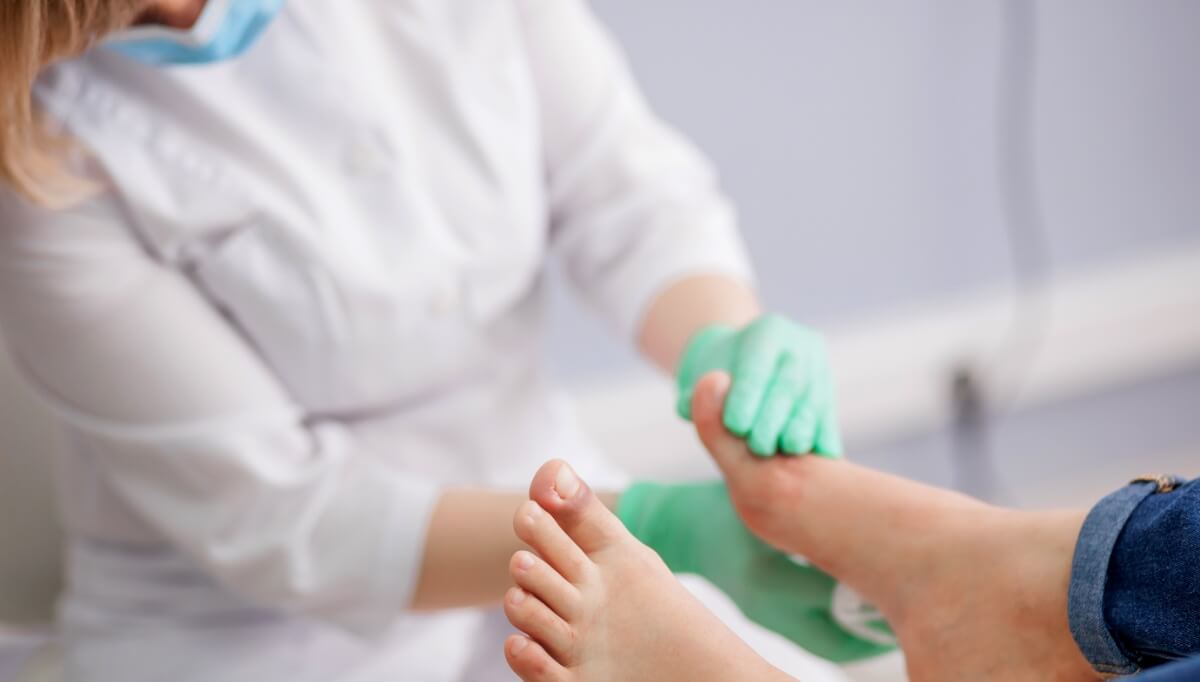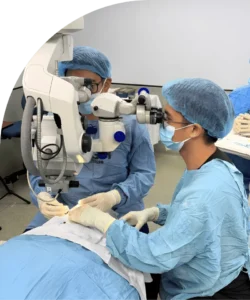Non-healing foot wounds present serious challenges for individuals with diabetes, affecting mobility, independence, and overall quality of life. Persistent sores or ulcers can result from poor circulation, neuropathy, or repeated trauma, making proper medical attention essential. TEC ORTHOPEDICS offers specialized orthopedic care in Quezon City to manage and treat these wounds effectively. Our team focuses on infection control, tissue preservation, and restoring mobility to ensure patients experience the best possible healing outcomes.
Understanding Non-Healing Foot Wounds in Diabetes
Foot wounds that fail to heal properly are common among patients with diabetes. High blood sugar levels can damage nerves and reduce circulation, slowing the healing process and increasing the risk of infection. Non-healing wounds may appear as persistent sores, redness, swelling, or discoloration, and they often become painful over time. Without prompt orthopedic care, these wounds can lead to severe complications, including tissue necrosis, systemic infections, and in extreme cases, amputation. Recognizing the early signs and seeking orthopedic intervention is critical to prevent these outcomes.
Why Orthopedic Treatment is Essential
Orthopedic Treatment for Non-Healing Foot Wounds in Diabetes is designed to address both the immediate wound and its underlying causes. Orthopedic specialists assess blood flow, nerve function, and tissue health to develop a comprehensive treatment plan. This approach ensures that infections are controlled, tissue is preserved, and the patient can maintain mobility. By focusing on the root causes of chronic wounds, orthopedic care reduces the risk of complications and supports long-term foot health.
TEC ORTHOPEDICS Approach to Treatment
TEC ORTHOPEDICS provides a structured and thorough approach to managing non-healing foot wounds. Our methods combine advanced diagnostic tools, personalized treatment strategies, and patient education to maximize healing outcomes.
Comprehensive Evaluation: Every patient undergoes a detailed assessment, including a review of medical history, physical examination, and diagnostic imaging. This evaluation identifies the severity of the wound, the presence of infection, and any underlying orthopedic or vascular issues that may affect healing.
Infection Management: Effective infection control is critical for non-healing wounds. TEC ORTHOPEDICS employs antibiotics, regular wound cleaning, and debridement techniques to remove dead or infected tissue. Managing infection promptly prevents the spread to surrounding tissues and reduces the risk of systemic complications.
Wound Care and Tissue Support: Specialized dressings and topical therapies promote tissue regeneration while protecting the wound from further injury. Our team carefully monitors the wound’s progress and adjusts care as needed to ensure optimal healing.
Mobility Support: Maintaining mobility while protecting the wound is essential. Orthotics, custom footwear, and physical therapy help redistribute pressure, support proper gait, and prevent additional damage. This combined approach enhances healing and preserves the patient’s ability to remain active.
Surgical Intervention: Some wounds may require surgical intervention when non-surgical measures are insufficient. TEC ORTHOPEDICS performs procedures such as debridement, soft tissue repair, and reconstructive surgery to restore function, remove damaged tissue, and facilitate complete healing.
Ongoing Monitoring: Continuous follow-up care ensures wounds are healing as expected and complications are addressed immediately. Patients receive education on foot care, blood sugar management, and lifestyle adjustments to minimize the risk of recurrence.
Non-Surgical Options for Diabetic Foot Wounds
Orthopedic Treatment for Non-Healing Foot Wounds in Diabetes often begins with non-invasive therapies. These include:
- Medications to control infection and inflammation
- Physical therapy to improve circulation and maintain strength
- Orthotic devices and custom footwear to redistribute pressure and protect vulnerable areas
- Lifestyle guidance to support diabetes management and prevent further injury
Non-surgical interventions are effective for many patients and often prevent the need for surgery when implemented promptly and consistently.
Surgical Options
Surgical options are considered for wounds that do not respond to conservative treatment. TEC ORTHOPEDICS offers:
- Debridement, which removes dead or infected tissue to promote healthy healing
- Soft tissue repair, restoring the structure and function of affected areas
- Reconstructive surgery, addressing severe tissue damage and supporting mobility
Following surgery, patients receive a structured recovery plan including wound care, physical therapy, and regular monitoring to ensure full recovery.
Preventing Recurrence of Foot Wounds
Long-term management is crucial to avoid future foot injuries. Patients are encouraged to:
- Inspect feet daily for cuts, sores, or signs of infection
- Maintain strict blood sugar control
- Wear protective, well-fitted footwear
- Seek immediate care for any new injuries or persistent discomfort
Patient education plays a central role in preventing recurrence and supporting overall foot health.
Why Choose TEC ORTHOPEDICS in Quezon City
TEC ORTHOPEDICS stands out for its patient-focused approach, combining expertise with compassion. Key advantages include:
- Highly experienced orthopedic specialists with a focus on diabetic foot care
- Advanced diagnostic and treatment options tailored to individual needs
- Comprehensive strategies to restore mobility, relieve pain, and improve quality of life
- Assistance with insurance coverage and a smooth consultation process
Our clinic ensures every patient receives personalized attention and treatment designed to achieve the best possible outcomes.
Takeaway
Orthopedic Treatment for Non-Healing Foot Wounds in Diabetes requires a comprehensive and patient-centered approach. TEC ORTHOPEDICS in Quezon City provides specialized care that combines advanced diagnostics, targeted therapies, and expert surgical options when necessary. By addressing both the wound and its underlying causes, patients receive the best chance for recovery, mobility preservation, and long-term foot health. Scheduling a consultation with a trusted orthopedic clinic ensures timely intervention, effective treatment, and guidance for maintaining healthy feet in the future.
Frequently Asked Questions (FAQ)
How long does it take for non-healing diabetic foot wounds to heal?
Healing time depends on wound severity, blood sugar control, and adherence to treatment. Regular monitoring and proper care significantly improve recovery timelines.
Can these wounds be treated without surgery?
Many non-healing wounds respond to non-surgical interventions, including wound care, medications, and mobility support. Surgery is recommended only when conservative measures fail.
How can I prevent future foot wounds?
Daily inspections, proper hygiene, blood sugar management, and protective footwear are essential preventive measures. Early attention to minor injuries reduces the risk of chronic wounds.
Is orthopedic care for diabetic foot wounds covered by insurance?
Coverage varies by provider. Patients should confirm benefits and out-of-pocket costs before treatment. TEC ORTHOPEDICS works with multiple insurance providers to facilitate care.
When should I see an orthopedic specialist?
Immediate consultation is advised for persistent wounds, signs of infection, or difficulty walking. Early orthopedic intervention improves healing outcomes and prevents serious complications.




